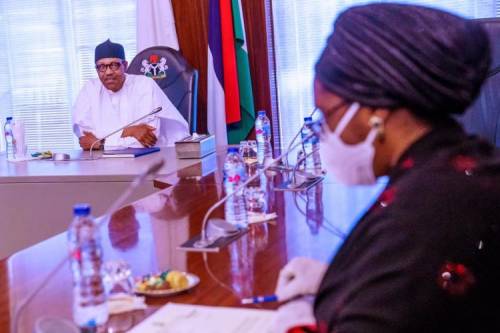Sports
FG Proposes 5 years jail term for non-remittance of tax in Nigeria

Federal Government has proposed five-year imprisonment and/or N5 million fine on any staff convicted for failing to remit the gross taxes, levies, revenues or other monies raised or received into designated account without National Assembly’s approval.
The proposed sanctions were contained in the new Finance 2021 which was presented by President Muhammadu Buhari for legislative action.
Some of the proposed reforms in the new Finance bill, 2021, include 5 per cent capital gains tax imposed on shares’ disposal transactions where gains exceed N500 million in 12 calendar months; inclusion of gaming, lottery and gambling companies within corporate tax net; imposition of taxes on oil & gas companies’ dividends as well as midstream & downstream oil and gas companies, among others.
The proposed legislation also seeks to empower Federal Inland Revenue Service (FIRS) to collect Nigeria Police Trust Fund Levy; sanction non-compliant taxpayers refusing access to IT systems; sanction non-compliant banks that fail to deliver quarterly returns; investigate tax evasion and other crimes as well as streamline tax and levy collection from Nigerian companies in line with the present administration’s ease of doing business reforms.
The proposed legislation also seeks to clarify Qualifying Capital Expenditure (QCE) rules for small firms and pioneer companies; prevent double-dipping such that companies cannot deduct QCE to reduce their taxable profit (and tax payable) where the relevant QCE is used to generate tax-exempt income.
She also informed the lawmakers of the possibility of introducing new tariffs and levies in 2022 as the economy continues to recover.
Minister of Finance, Budget and National Planning, Dr Zainab Ahmed, stressed the need for Nigeria to diversify its revenues from oil to fund critical expenditures, disclosed that Federal Government’s retained revenue was N4.56 trillion (75 per cent of budget) as at September 2021; Federal share of oil revenues – N845 billion (56.3 per cent pro-rated performance); N1.31 trillion (117.3 per cent above budget) as the federal share of non-oil revenues; N616 billion and N274.4 billion (121 per cent and 153 per cent of pro-rata targets) of Companies Income Tax (CIT) and Value Added Tax (VAT) and N418 billion Customs collections for the period under review.
The Minister said that modest changes had been proposed but that more fiscal reforms were still in view as the ministry could not take all the proposals collected from stakeholders.
”Our aspiration is to do a midterm review with a possibility of another Finance Bill in mid-year 2022 to bring in more amendments,” she said
The Minister said that there are ongoing legal cases in court against the Federal Government on VAT and Stamp Duties which was why the ministry stayed off those areas.
She, however, expressed hope that by mid-2022, the cases might have been dispensed with and then reforms in those areas could be proposed for parliament to consider.
Ahmed said that there might be a need to revisit the antiquated Stamp Duties and Capital Gains Tax for holistic reform by the parliament.
“We prepared this draft bill along with five reform areas, the first domestic revenue mobilisation, the second is tax administration and legislative drafting, third is International taxation, fourth is financial sector reforms and tax equity and fifth is improving public financial management reform.
“The provision in the draft bill is proposing to amend the Capital Gains Tax Act, Company Income Tax, FIRS Establishment Act, Personal Income Tax, Stamp Duties Act and Tertiary Education Act, Value Added Tax, Insurance Police Trust Fund and the Fiscal Responsibility Act.
“This is to amend the Police Trust Fund Act and the Nigerian Trust Fund Acts, the purpose is to empower the FIRS to collect the Nigerian Trust Fund levies on companies on behalf of the fund itself.
“Currently, because there is no such provision, the FIRS is unable to start collecting on behalf of the fund. Also, it is to streamline the tax and the levy collection from the Nigerian companies in line with Mr President’s administration ease of doing business policy.






